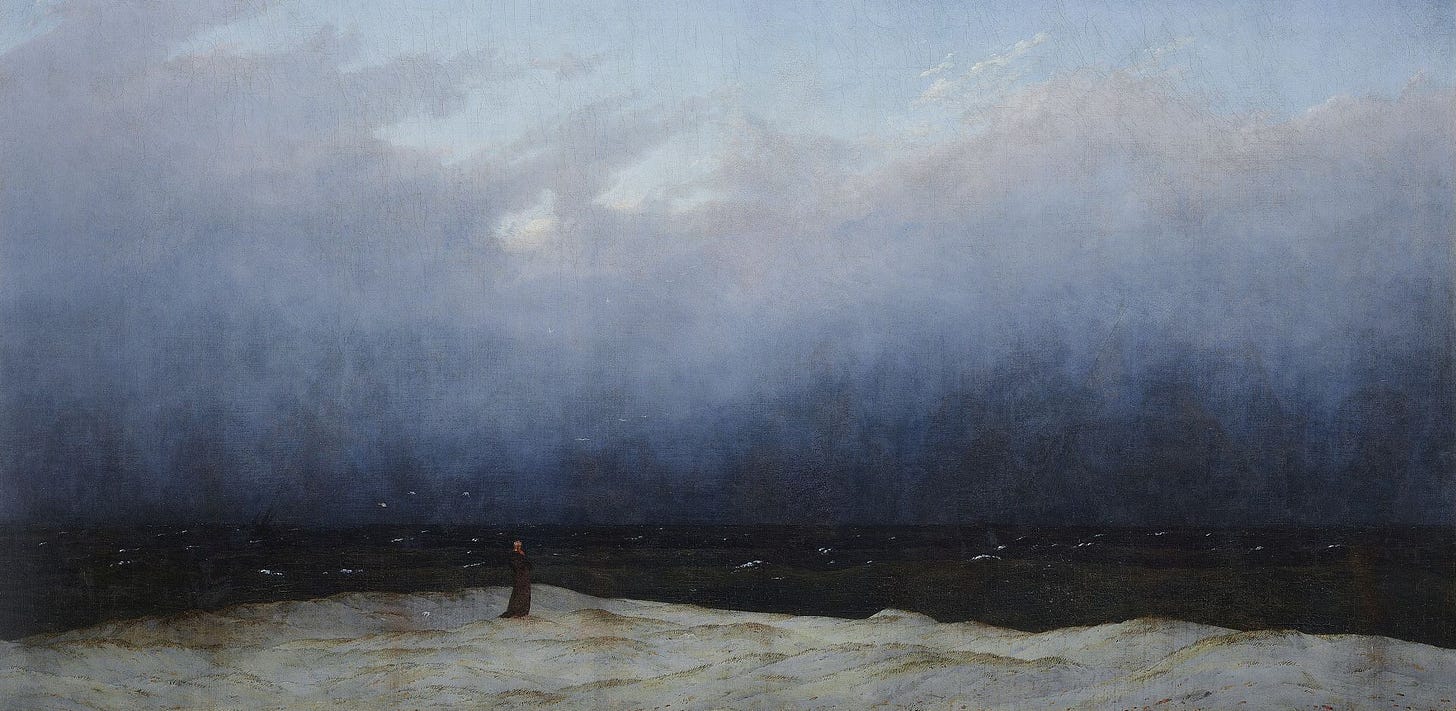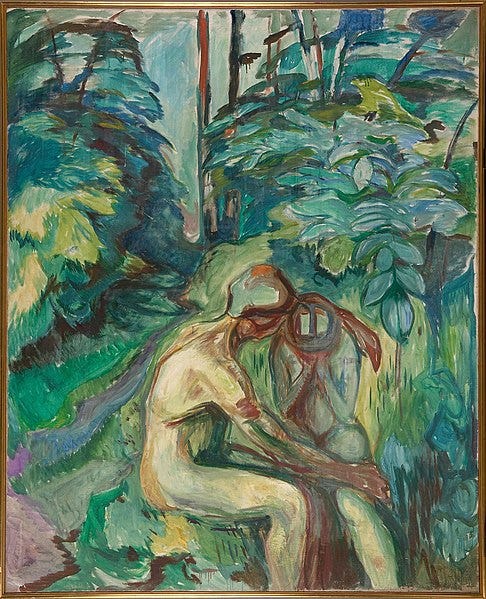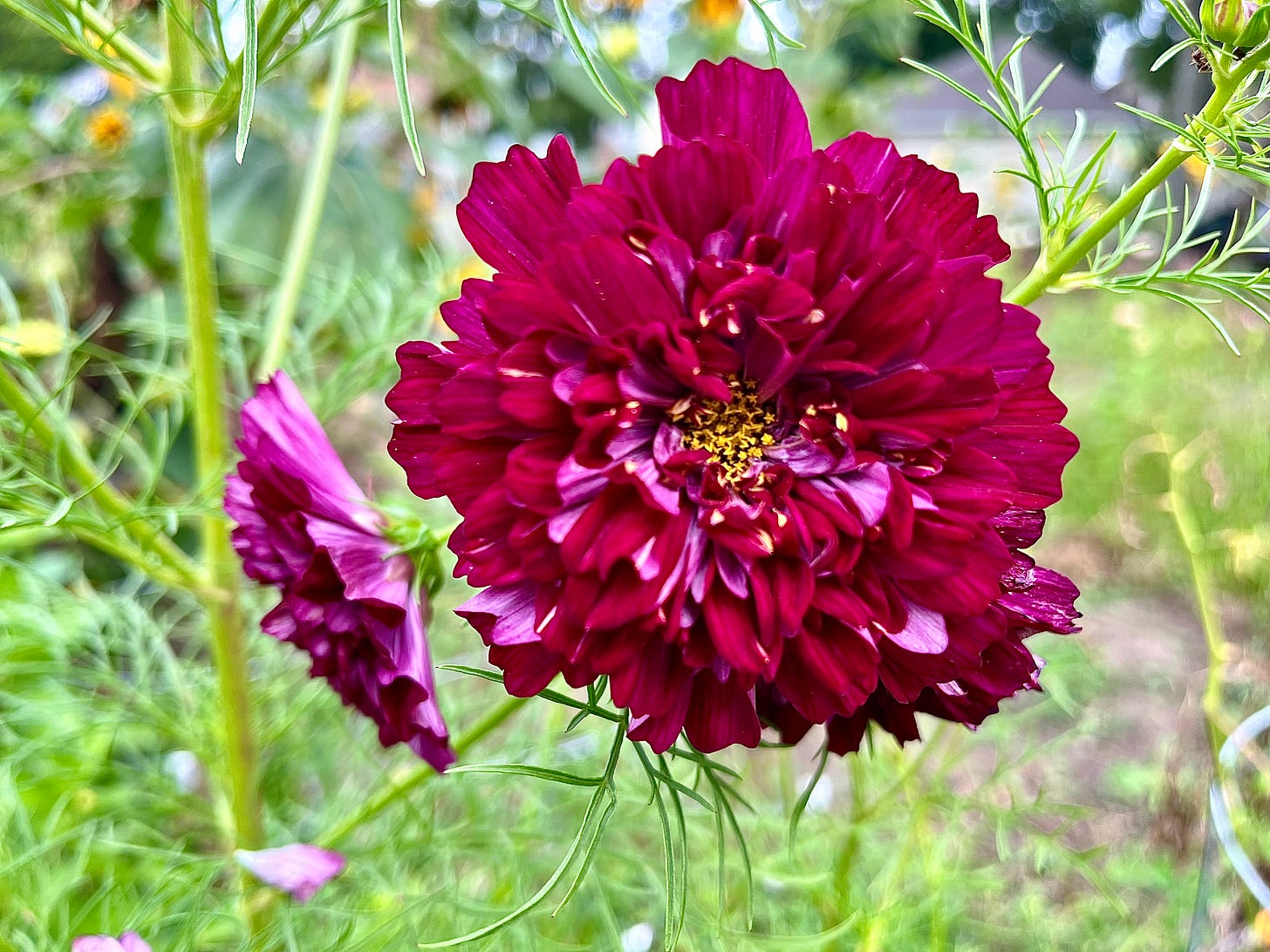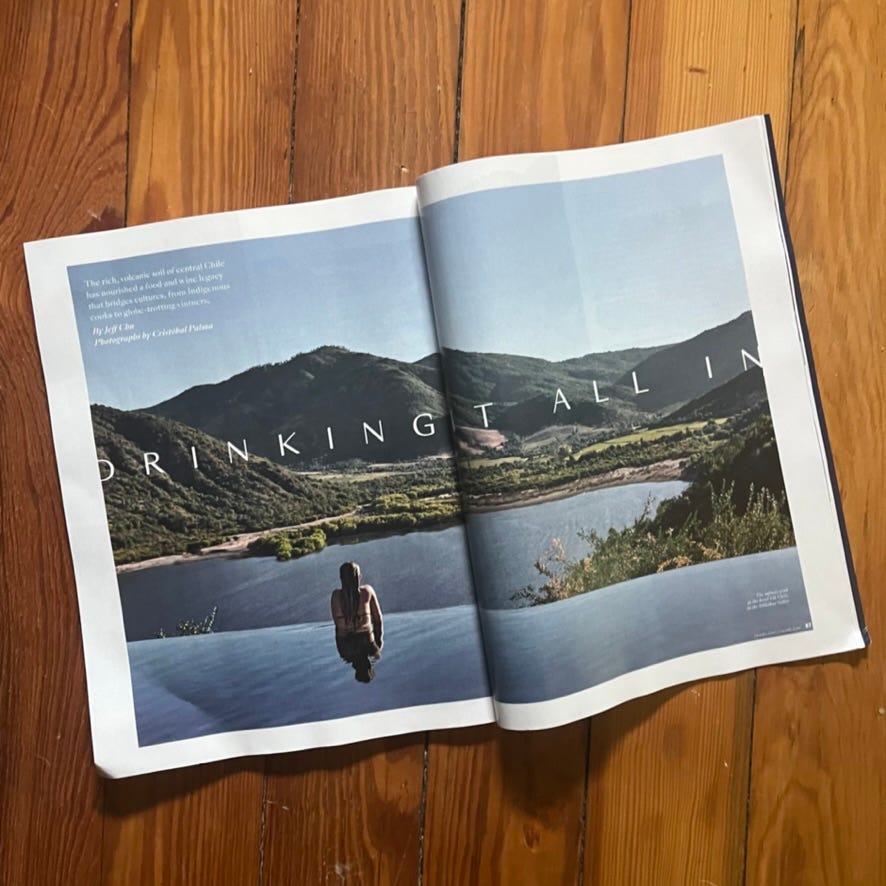The Antidote to Loneliness
Some fragmented thoughts on fighting our way back to one another, seeking solidarity, a moving poem, floofy cosmos, and upcoming sermons
Friday, August 30
Grand Rapids, Mich.
Life can be so lonely. Life can be so hard.
That was the first line of the blessing I offered you all last week. Then, on Wednesday, I read this piece, by the writer Matthew Shaer, from The New York Times Magazine: “Why Is the Loneliness Epidemic So Hard to Cure?”
Shaer cites a range of studies over the past several years that have surveyed people on loneliness, which the Centers for Disease Control and Prevention defines as “feeling like you do not have meaningful or close relationships or a sense of belonging.” He also chronicles the many ways in which we are increasingly apart and alone—not just a decline in meaningful interaction but also decreases in the incidental ones, including brief conversations with acquaintances and even encounters with, say, retail staff as a result of the rise of self-checkout lanes and delivery apps.
The piece also touches on the fascinating science behind loneliness. Turns out loneliness isn’t just an emotional event. Isolation and exclusion produce physiological reactions. One study invited participants to imagine being excluded from a game of catch—just reading about this made me remember those elementary-school games of kickball—and then scanned their neural activity; the mere act of imagining activated a section of the brain associated with pain. Another, particularly wild study found that, when test subjects were hypnotized into a state of loneliness, their blood pressure spiked, as did inflammation levels.

The late John Cacioppo, a University of Chicago psychologist whose work is cited in the Times Magazine piece, also co-authored, with William Patrick, a book called Loneliness. It’s a sobering read. Those feelings of loneliness and the accompanying physiological signals have an important purpose: “In the same way that physical pain serves as a prompt to change behavior—the pain of burning skin tells you to pull your finger away from the frying pan—loneliness developed as a stimulus to get humans to pay more attention to their social connections, and to reach out toward others, to renew frayed or broken bonds.” Yet Cacioppo and Patrick acknowledge that the capacity to address loneliness can differ from person to person: “One person will manage to cope until the next opportunity for connection comes along, while another may enter into a downward spiral of self-defeating, even self-destructive thoughts and behaviors, the kind that encourage cellular responses which, over the long haul, prove dramatically corrosive.”
An important note: I have been both of these people. I suspect that many of us have. Our coping capacity might vary depending on the season. Our network of relationships might be stronger sometimes, weaker others. Our ability to perceive support, or to seek it, might rise or fall.
Shaer talks with researchers who suggest that one reason for our loneliness is that the world is changing so quickly around us. “We’re the first people in the history of the earth to see the conditions of social life change in this way,” NYU sociologist Eric Klinenberg tells Shaer. Change has been a constant for every generation, yet the speed and the substance of the changes we are trying to process—digital, environmental, cultural, political—seems to have outstripped our ability to adapt.
What then?
Note that I say “seems to have.”
Over the past couple of months, I’ve had a remarkable series of conversations with friends and loved ones about loneliness and change. Some are just realizing how isolated they feel. Others vent about their attempts to forge relationship and how fruitless that can appear sometimes. Some are giving voice for the first time to the particular contours of their loneliness. Others have spent months, if not years, puzzling through precisely what they need to do to renovate the infrastructure of their lives for better support.
I’m not sure these friends and loved ones realize just how inspiring they have been to me, particularly in my own moments of loneliness. In every instance where I dared to ask, “How are you?” in a way that went beyond the superficial and the perfunctory, I have glimpsed remarkable resilience, laudable self-awareness, and tender, painful growth. In every single instance, I have seen and heard how they are striving to pay attention and doing hard but necessary work. They remind me that there are no quick fixes, no instant antidotes. But with faithful labor, even fitful and sporadic, we can find our way back to wholeness—which is to say, community.
I wonder, too, if we have underestimated the importance of complaint as one potential path through loneliness.

In some cases, it might seem as if someone is just complaining. But lamenting the present state of things is often an important prerequisite to imagining a different future. And even the roots of the word “complaint” remind me that one way out of loneliness could reasonably be found together: It comes from the old French complaindre, which itself grows out of the Latin prefix com- (“together” or “with”) and the verb plangere (“to bewail,” “to lament,” “to beat one’s breast in grief”). What might happen if you had someone to bewail with you? What could be, if we dared to beat our breasts in grief alongside one another?
Somewhere in the back of my mind, I hear the echoes of the voices of my elders: Stop complaining. And sure, there can be times when we get stuck in complaint, when we use complaint as self-justification, when we put our complaints on repeat and can’t quite shift our gears out of “wallow.” (See my thoughts on wallowing in my last letter.) But perhaps complaining—one person’s courageous act of giving voice to what troubles them, and another person’s gracious reception of that complaint—can also be a means of beginning to find our way back to each other.
Earlier this week, our friends Wes and Hana and their two corgis spent a couple of nights with us. Hana accompanied me as I ran some errands on Tuesday afternoon. She shared about life, and I told her some things I’d never post on social media, and we might both have done a bit of complaining. I listened, and she listened, and we held some hard things together—happy ones, too. In that shared space, I felt her solidarity and I hope she felt mine.
Yes, life can be so lonely. And yes, life can be so hard. But when our solos somehow come into chorus, sometimes we can also find a different key.
I’d love to make space for your complaints—no matter how serious or grave, no matter how small or petty. (Sometimes I consider myself a connoisseur of the deliciously petty complaint.)
What I’m Reading: Whether you’re writing in hopes of publication or you write just for yourself, I think the poet and author Maggie Smith is one of the best inspirations out there. In her newsletter, “For Dear Life,” she regularly offers pep talks, pulls the curtain back on her own writing process, and occasionally points her readers to poets and authors that she loves. Last week, she introduced me to the poet Martha Silano and her bracingly candid (and maybe complaint-inspired?) poem “When I learn Catastrophically.” I’m still in awe of Silano’s radiant storytelling as well as her way of observing the world around her, even in the midst of her own suffering as someone with ALS.
What I’m Growing: Honestly I do feel a little lonely when I go to the community garden, which I try to do nearly every day. I still miss Fozzie. But this is also the time of year when I am never alone there. Almost always, finches are perched in the branches of the sunflowers, feasting on the seeds and reminding me that, even after the blossoms fade, the story isn’t over yet. Bees buzz here and there, harvesting pollen and nectar. Butterflies flit through the cosmos and the zinnias. Their presence offers consolation, as do these cosmos. If only they were a thousand times as big; I’d just launch myself into their fluffiness and take a long afternoon nap.
Programming Notes: You can find some of my words in September’s Travel+Leisure, which is on newsstands now. Tristan and I traveled to Chile in March 2023 for a piece about the food and wine of Chile. We got to meet such wonderful people, including a Mapuche woman named Isolina Huenulao, who began making wine at the age of 59, and the wildly imaginative chef Rodolfo Guzman, whose famed Santiago restaurant, Borago, honors his homeland’s Indigenous foodways. (You can also find the piece online here, but I’m still a fan of the old-school print magazine.) Would love to know what you think.
Also, I’ll be out and about in September. If you’re in or near any of the following cities, I hope you’ll come say hello.
On Sunday, September 8, I’ll be preaching at both 8:30 and 11 a.m. Central at St. Mark’s United Methodist Church in Houston, Texas (600 Pecore Street, in the Heights). During the Sunday-school hour—the church website says 9:45 a.m., but I’m told by reliable sources that it’s coffee and kolaches until we actually start around 10—maybe I’ll give a little preview of Good Soil... We’ll see. (St. Mark’s livestreams the 11 a.m. service on their YouTube channel.)
On Sunday, September 15, I’ll be in Richmond, Virginia. In the morning, please join me and the good people of Battery Park Christian Church (4201 Brook Road) at 11 a.m. ET for worship. Then, at 6 p.m., I’ll be speaking at River Road Church (8000 River Road) as part of their 2023-2024 Distinguished Speaker Forum.
Finally, on Sunday, September 22, I’ll be at the First Presbyterian Church of Annapolis, Maryland, where my friends Mihee Kim-Kort and Andy Kort are co-pastors. Worship is at 8:30 a.m. ET as well as at 11:00 a.m., and I think I’m doing something during the education hour, at 9:30 a.m., too.
What an ecumenical month it will be! And so much talking! After all that, I think I will want to shut up for a little while.
Thanks for being alongside me through all this. Grateful for you.
All my best,
Jeff







My wife and I have a friend who is in her late 90s. Incredibly she's still in her own home by herself. But, even with women's club and church, she gets lonely, so this reminded me to invite her to go out for breakfast tomorrow morning. Thank you.
My husband died in May and I am so lonely for his company. We had such fun together for the 43 years we were married. He is the best thing I ever did. I have many friends and a beautiful family, but this loneliness is wrapped up in grief.